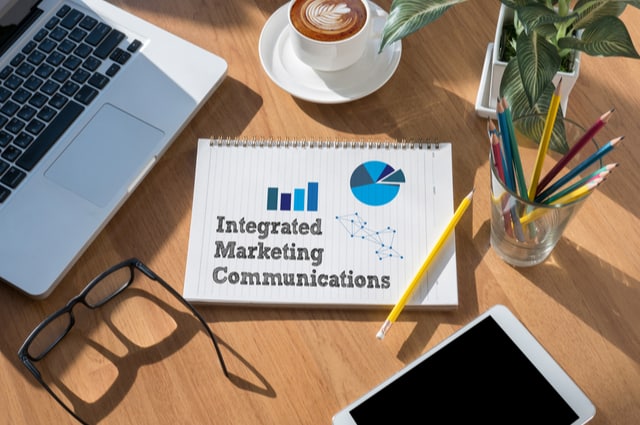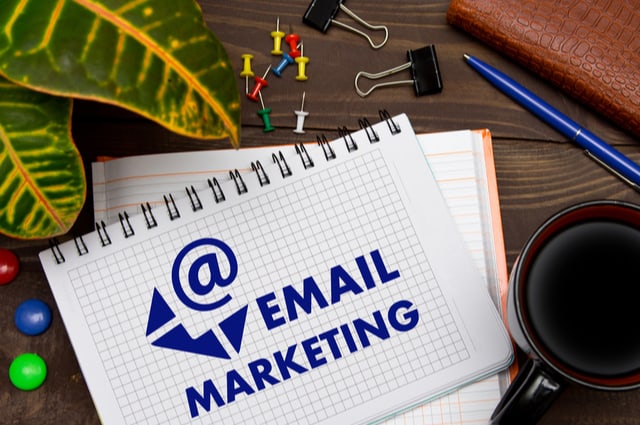Do you know the Interesting Advantages of Marketing Automation Tools?
Marketing automation software streamlines the marketing procedures needed to support digital marketing efforts. This can include lead scoring and website monitoring. It also includes audience segmentation, behavioral analysis, and campaign management.
What is the purpose of marketing automation?

Time is saved via marketing automation. You get better results and less human error when repeated processes are automated.
You can concentrate on more strategic duties rather than doing things manually. It can be like a campaign strategy and layout, goal development, and research. It can also be about brand consistency, KPI monitoring, and more.
When consumers hear the phrase “marketing automation,” many of them immediately think of email marketing. It does more than just automate email marketing, though.
For instance, we can automate the following tasks with marketing automation software.
- Creation, nurturing, and scoring of leads.
- Audience targeting and segmentation.
- Cross-selling and upselling activities.
- Initiatives for retaining and rewarding customers.
- Enhancing marketing and content strategy with analytics and reporting.
- A/B testing to determine the most effective headlines, offers, content, or images.
Marketing automation software helps you improve customer profiles and consumer data.
You may leverage data to enhance the customer experience (CX). It can be done by constructing specialized, individualized experiences across channels.
How can marketers benefit from marketing automation?

Time is saved by replacing manual and repetitive operations with marketing automation software.
Let the software handle the tactical tasks. This allows marketers to devote more time and money to strategy, content, and original problem-solving.
Campaigns become more successful in marketing automation.
The personalized information is delivered on effective channels and at the right time.
Given the intricacy of modern multichannel digital marketing efforts, doing that manually would be nearly impossible.
Marketing automation makes it possible to start more successful marketing campaigns. It also gets rid of annoying, tedious daily duties that feel like chores.
These would comprise, but are not restricted to:
- Campaign planning in one system, data analysis in another.
- Managing client histories that are only kept for a short period.
- Wasting time searching for leads that ought to be simpler to find.
- Removing redundant records because of the CRM system’s lack of integration.
- Collaborating with IT to launch and update campaigns.
Manually completing these tasks consumes time, attention, and productivity. Marketing automation can significantly assist marketers by removing this drain.
The Advantages of Marketing Automation Tools

Marketing automation is beneficial to all sizes of businesses. Besides many other facets of digital marketing strategy and sales, it nurtures leads, aids in customer acquisition, and offers cross- and up-sells.
Marketing automation improves marketing effectiveness by enabling marketing teams to work more efficiently.
63 percent of companies expect to reap the rewards of marketing automation within the first six months of use.
How can you optimize your marketing automation investment? Here are a few of the major advantages of marketing automation.
1. Increased conversions
Clean customer data makes it simple to identify and target the correct people when marketing campaigns are managed using marketing automation.
Make offers in real-time to the appropriate contacts. The likelihood of closing a deal increases significantly.
2. There will be less time and money wasted on futile campaigns
The CRM system’s data on opportunities and revenues allows for total visibility into what is and isn’t functioning. This means that marketers can stop deciding based solely on intuition.
They can utilize data to assist their judgments, particularly when deciding whether to keep funding projects that might not generate financial returns.
3. Maintain the proper sequence.
Everything runs more smoothly thanks to marketing automation.
It organizes transactions, lines up tasks, makes workable timelines, and lines up internal teams to accomplish objectives.
4. Increased output from employees
Your staff no longer has to spend time on manual, repetitive work with the proper marketing automation technology. They can concentrate on more strategic problems.
Marketing automation makes their work simpler, more effective, and more interesting.
5. Promoting and enhancing revenue growth
It is simple to boost income and increase your bottom line because the best marketing automation software has so many capabilities.
- There are no longer data silos between the marketing and sales departments.
- The sum of money used for marketing initiatives is maximized.
- Faster generation of more leads that qualify for marketing.
- Key accounts can be quickly located.
- First-party consumer data can be easily improved, making lead scoring and prioritization simple.
- Clean and full consumer data across instances and geographies improve campaign results.
- Greater capacity to lead potential customers through the purchasing process by sending messages across the channels at the appropriate times.
- Enhanced capacity for measuring each stage of the purchasing cycle.
- Identifying the most successful marketing campaigns and distribution tactics.
- Analytics that make it possible to forecast the results of marketing and sales initiatives in terms of revenue.
6. Higher rates of consumer retention
Once a customer is won, marketing is not over. Both customer acquisition and retention are essential. Marketing automation supports loyalty programs. It offers opportunities for upselling and cross-selling, as well as other initiatives that foster solid and enduring client connections.
Best practices for marketing automation

The planning and setup necessary to match automation with strategic goals are at the heart of the best practices for marketing automation. To name a few:
- Prioritize quality over quantity. Put quality first for the tools used, the leads produced, and the messaging communicated. As you strive to integrate the data between the silos that are created over the user journey, it can often be beneficial to use fewer technologies.
- Create individualized buyer journeys for all platforms. Respond to users right away while keeping in mind their previous actions. This shows that you are attentive to and aware of them. With the help of marketing automation workflows, it is simple to carry out lead scoring and sales enablement tasks while also responding quickly to customer behaviors.
- Produce material that appeals to your audience. If one marketing asset performs well, this can influence the subsequent content structure, offer, and timing. In order to determine what generates returns, marketing automation offers information on the effectiveness of each piece of content.
Marketing automation tools and their capabilities
- Tools for creating campaigns, deploying them optimally, and streamlining campaign management.
- Tools for audience building, filtering, segmentation, and target list updations. This combines data from external sources with CRM data to create filters and segment audiences.
- Tools for lead scoring and modeling that apply to many campaigns and business lines.
- To create responsive emails, landing or sales pages, and forms without requiring IT or agency support, use design editors.
- Tools for managing content and process workflows.
- Support for dynamic content can change and alter the messaging depending on several aspects.
- Toolset for optimizing subject lines.
- Support for the Account-Based Marketing (ABM) program.
- Integrations that enable real-time sharing of contacts’ marketing activity and account/profile information with sales.
- Native integrations with CRM.
- Analytics/dashboards that offer insight for attribution of revenue, emails, campaigns, and account analysis.
What impact does marketing automation have on your clients?

The advantages of marketing automation extend beyond what it can do for your business. It also benefits your customers by addressing common problem areas that have surfaced in the digital-first, omnichannel world.
Your client’s access to information makes it difficult for them to find the quick fixes they require. When customers do contact your company, they typically have a scattered experience. It is because they shift between teams, networks, and platforms.
Marketing automation may reduce this friction through team collaboration, accessible data collection, and task prioritization.
Present more pertinent content
You may customize what each customer sees using marketing automation. In your advertising and email marketing campaigns, use buyer personas as well as behavioral targeting. It helps to deliver only the details that each prospect or client requires.
Customers are short on time. Hence, automation can help by emphasizing the most important content at the right time by leveraging the data you’re already gathering.
Give quicker and better responses.
Businesses may manage leads and prioritize activities with the use of marketing automation. It ensures that inquiries are promptly addressed.
Thanks to behavioral data saved in your CRM, front-line staff members can provide more relevant help without conducting preliminary research.
Recognize your customers’ past behavior and program responses based on previous purchases, in-product actions, or lifetime value.
Interactions should be multichannel and seamless.
Repetition irritates everyone. So clients adore marketing automation. The information is collected, stored, and used in your marketing software. It provides your customers with a customized experience.
It can be like pre-filled forms, targeted emails that suit their purposes, and customer support that appears as accustomed as the store down the street. No matter how a customer contacts you, automation ensures a consistent experience.
Conclusion
Marketing automation is frequently hailed as the panacea for all of your problems. It acts as a marketer, boosting customer retention, increasing conversion rates, and getting rid of manual labor.
Automation can, in fact, have a huge positive impact on your marketing strategy. But only if it’s done properly.
These best practices for marketing automation can ensure that you get the most out of your efforts. Regardless of whether you’re just getting started or trying to enhance your current initiatives.
Subscribe to our Newsletter
Sign up to receive email updates on new product announcements, exclusive sales and marketing content, special offers on email validation plans, and more.
We send curated content as per your preference and do not indulge in spam!
What would you like to know about
We’re committed to your privacy. TuxMailer uses the information you provide to us to contact you about our relevant content, products, and services. You may unsubscribe from these communications at any time. For more information, check out our privacy policy.



